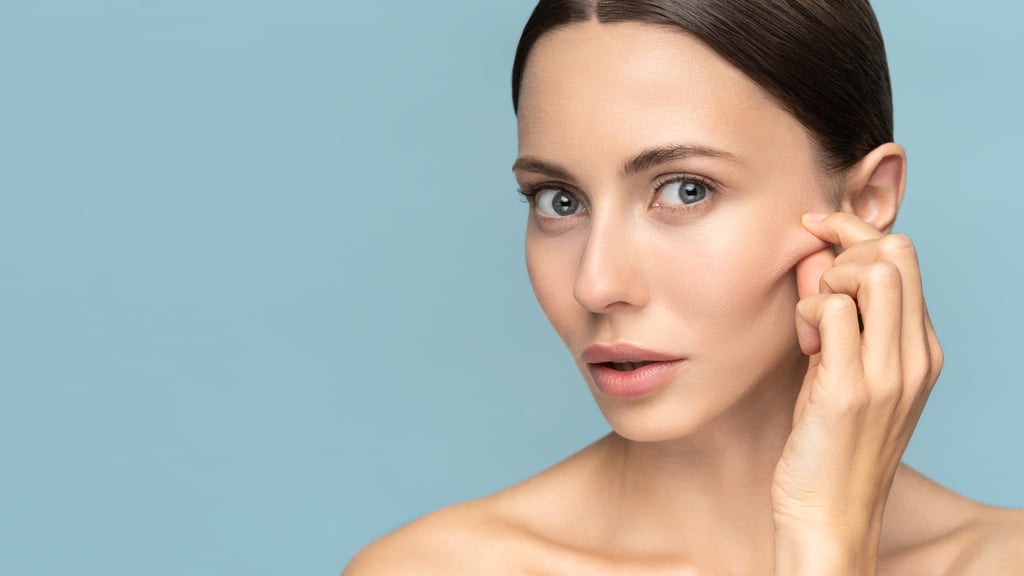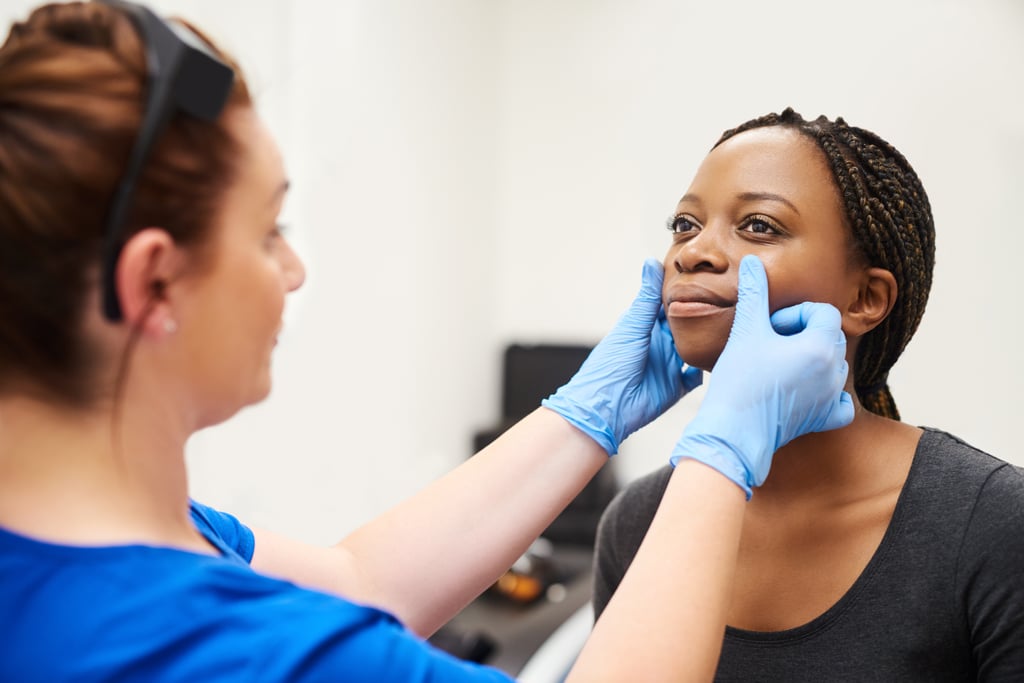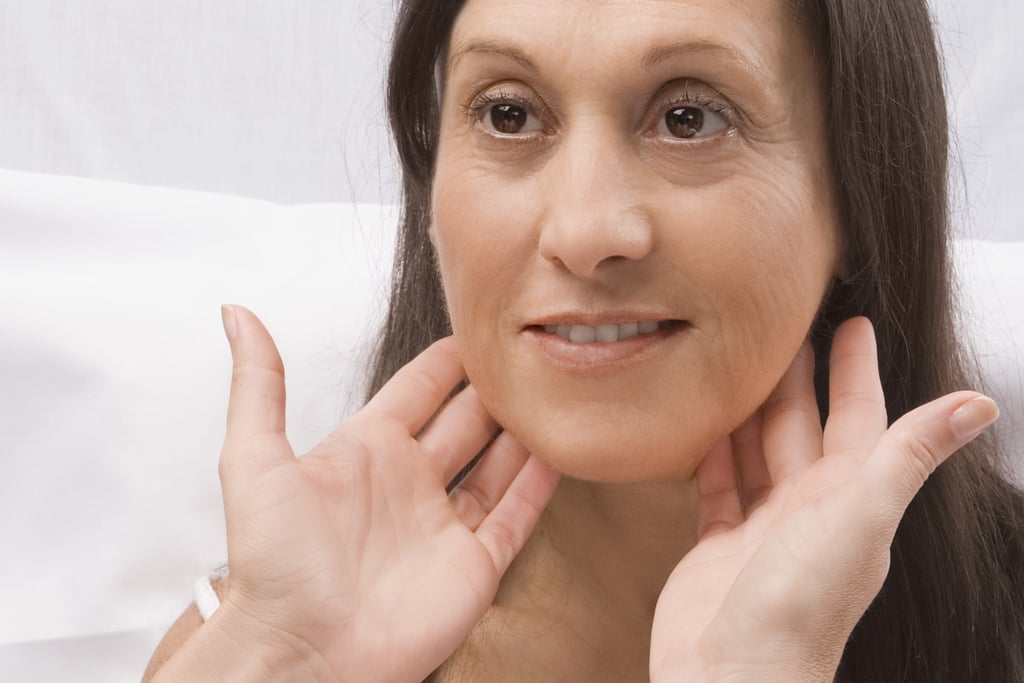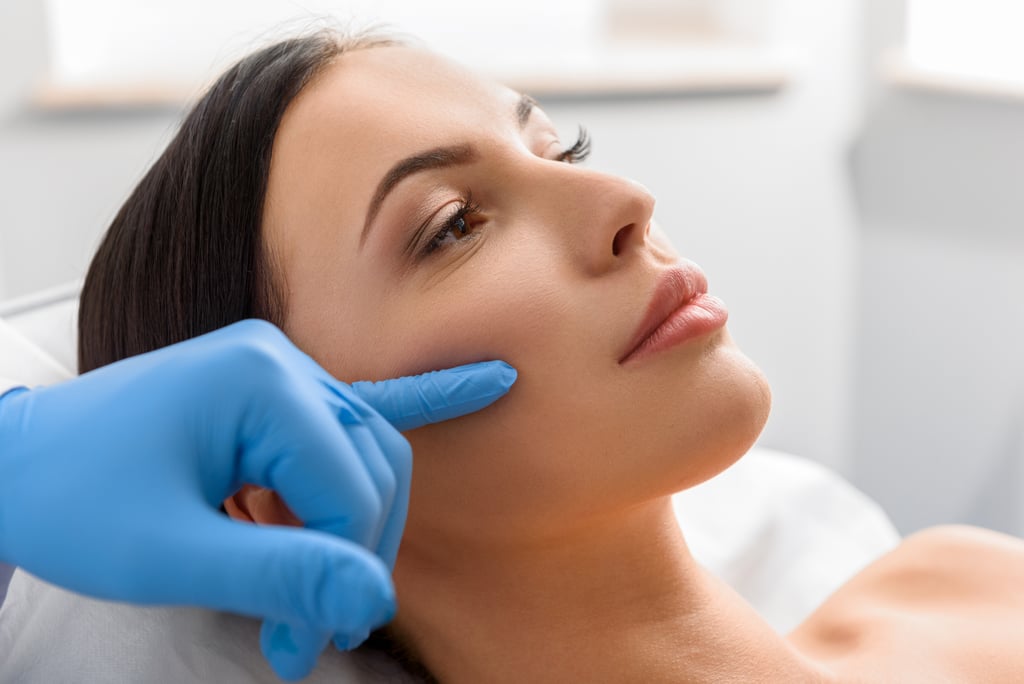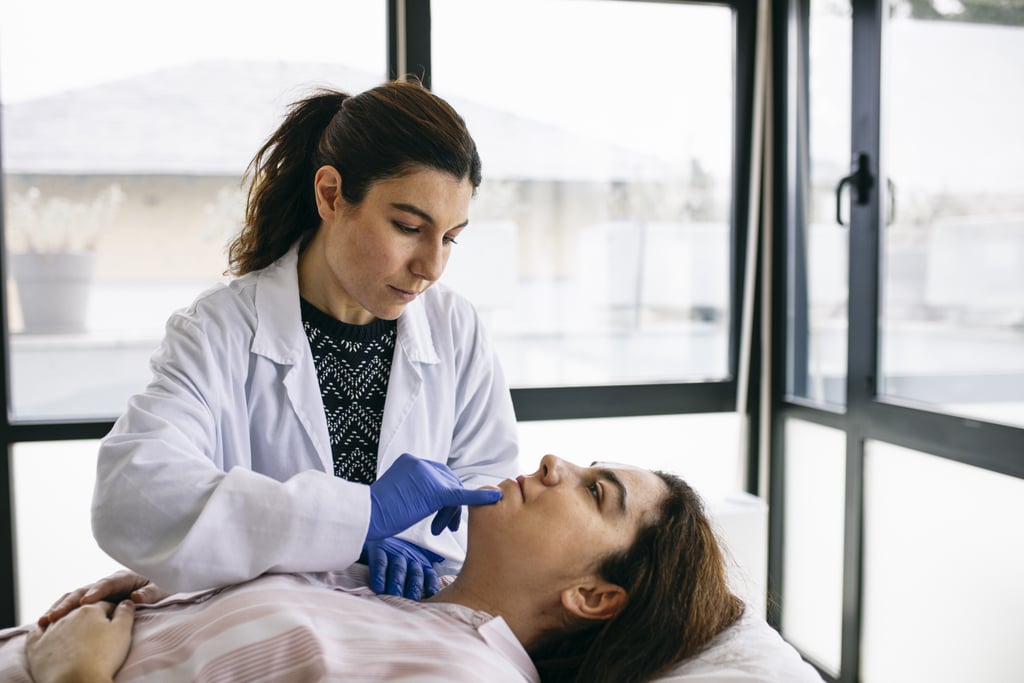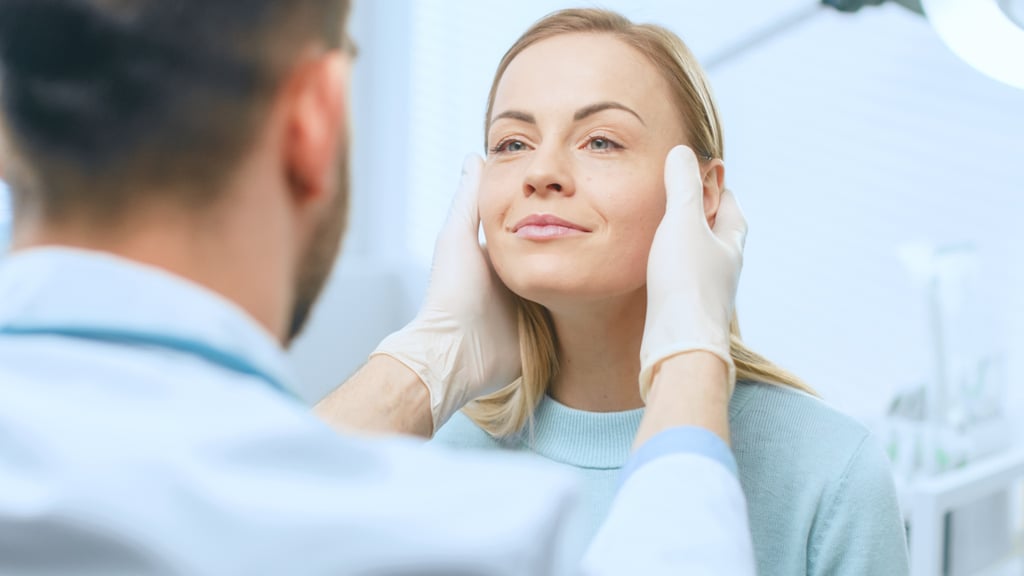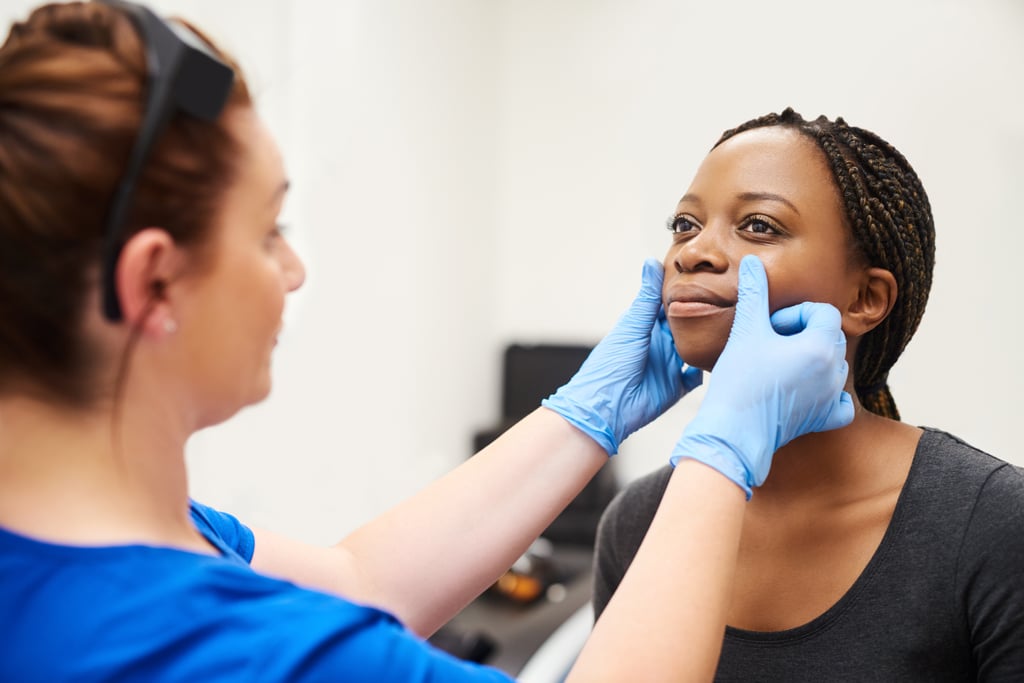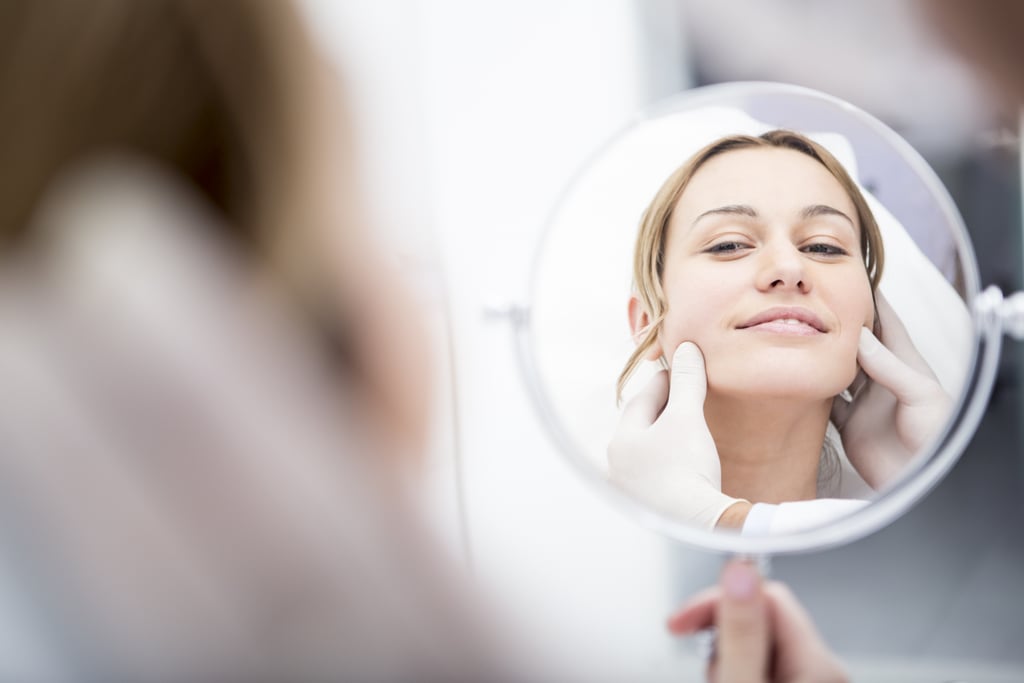- Buccal fat removal has begun to trend since Chrissy Teigen revealed she underwent the procedure to thin her cheeks.
- The process, while minimally invasive, has doctors polarized on its sudden popularity.
- We asked two board-certified plastic surgeons to explain what the procedure is.
With the rise in discussions surrounding plastic surgery over the last few years, cosmetic procedures have begun to seem more accessible than ever. The procedures that have taken centre stage have been ones that yield more extreme results, like the Brazilian butt lift or breast augmentation [1], but there is one procedure, in particular, that is rising in popularity: buccal fat removal — and it has the medical community divided.
Buccal fat removal has been trending on TikTok ever since Chrissy Teigen revealed she underwent the procedure to thin her cheeks. The procedure, also called buccal fat pad excision, is regarded as the secret to "Instagram cheekbones." Social media platforms have been flooded with people showing off their transformation from fuller faces to more chiseled cheeks, documenting what they looked like the days leading up to the procedure versus after they healed.
But what exactly does the procedure entail? We spoke with board-certified plastic surgeons Raymond Douglas, MD, PhD [2], and Darren Smith, MD, FACS [3], to find out what you should know before getting the surgery, who the best candidates are, and the pros and cons of getting the procedure done. From insurance coverage to longevity of the results and everything in between, read ahead to find out what you should know before getting a buccal fat removal procedure done.
What Is a Buccal Fat Pad Excision?
"Buccal fat pad excisions involve removing a small amount of fat from the lower cheeks (near the corners of the mouth) and results in a slimmer lower facial third," Dr. Smith told POPSUGAR. "It can also help accentuate the cheekbones, as these are above the area from which fat is removed."
Dr. Douglas added: "Its size and shape varies greatly from patient to patient, but for everyone, it contributes to the face shape." Not only that, but it also provides "cushioning between the teeth and jaw."
How Invasive Is the Buccal Fat Removal Procedure?
Categorized as cosmetic surgery, the procedure is not very invasive. "They are considered a minimally invasive surgical procedure because they only require a relatively tiny incision inside each cheek and has a full recovery time of only about one week to 10 days," Dr. Smith said.
During the procedure, a "2cm incision is made inside the cheek by going through the mouth," Dr. Douglas said. "There are no incisions on the outside of the face, so there are no visible scars."
How Long Does the Procedure Take, and How Long Do Results Last?
Both Dr. Smith and Dr. Douglas said the surgery does not take much time at all. "The procedure can be done under local anesthesia and is generally completed in under an hour," Dr. Smith said. However, if you're getting this procedure, make sure it's something you really want. "The results are permanent," he said. "Once the fat is removed, it does not grow back."
How Should You Prep For Pre- and Post-Operation?
Preparation for the procedure is fairly light but should start up to two weeks prior to getting a buccal fat pad excision. "I generally advise my patients not to take ibuprofen or aspirin in any form for two weeks prior to this procedure as they are blood thinners," Dr. Smith said. "Alcohol should be minimized prior to the procedure as well. If done under local anesthesia, a light breakfast is OK on the day of the procedure."
Afterward, you'll experience some swelling, which should only be significant for two to three days. "A buccal lipectomy patient may experience facial swelling following surgery. However, the swelling will dissipate on its own within about two to three weeks," Dr. Douglas said. "After the swelling stops, the cheeks will start to look thinner and more contoured."
You can also expect to follow a liquid diet for a few days. "I also advise patients to brush only their front teeth for one week following the procedure, and to avoid any heavy exertion for two weeks," Dr. Smith said. "However, it is important to be up walking immediately after the procedure."
How Old Do You Have to Be For a Buccal Fat Removal Procedure?
"This procedure can be performed at any age after facial maturity is achieved," Dr. Smith said. Though, typically the earliest he sees patients for it is in their mid-to-late 20s.
If you would like to err on the side of caution, Dr. Douglas recommended waiting until your mid-to-late-30s because facial fat may reduce on its own. "Our buccal fat pads settle and 'mature' when we are about 21," he said. "Most patients will see a slow, progressive, and ongoing reduction in the buccal fat starting at 30 or so. Those decreases continue through the decade and continue into our 40s and 50s, creating hollows, which contribute to laxity and ageing."
What Is the Cost of a Buccal Fat Pad Excision?
The cost for a buccal fat pad excision starts at around $5K, and that price is usually not covered by insurance since it is an elective procedure. Though, there are instances when the procedure may be covered due to medical reasons.
What Are the Risks of Getting a Buccal Fat Pad Excision?
Though the procedure is a viable option to get enhanced cheekbones, both experts agree that, as is the case with any surgery, there are risks associated with getting it. Dr. Smith cautioned that the "very rare but possible complications of this procedure include bleeding problems, infection, damage to the facial nerve, or damage to the salivary duct."
"Many patients who may have this done may be looking to compensate later with dermal fillers or fat transfer, neither of which can adequately replace the encapsulated fat pad," Dr. Douglas said. "Evaluating the patient for the right bone and support structures and optimal weight and age for full development of maturity will help determine if they are a candidate for this procedure."
What Certifications Should a Doctor Have to Do This Procedure?
If you're considering this procedure, look for a board-certified plastic surgeon with a "specialty or concentration in the midface, including a unique medical and aesthetic understanding of the structures, tissues, muscles, and bones of the face," Dr. Douglas said. "The board-certified cosmetic surgeon should have specialised training and significant experience in the procedure and be able to explain his or her approach as well as create a surgical plan individualized to the patient." You may also want to consider looking for a cosmetic surgeon affiliated with a major medical centre.
